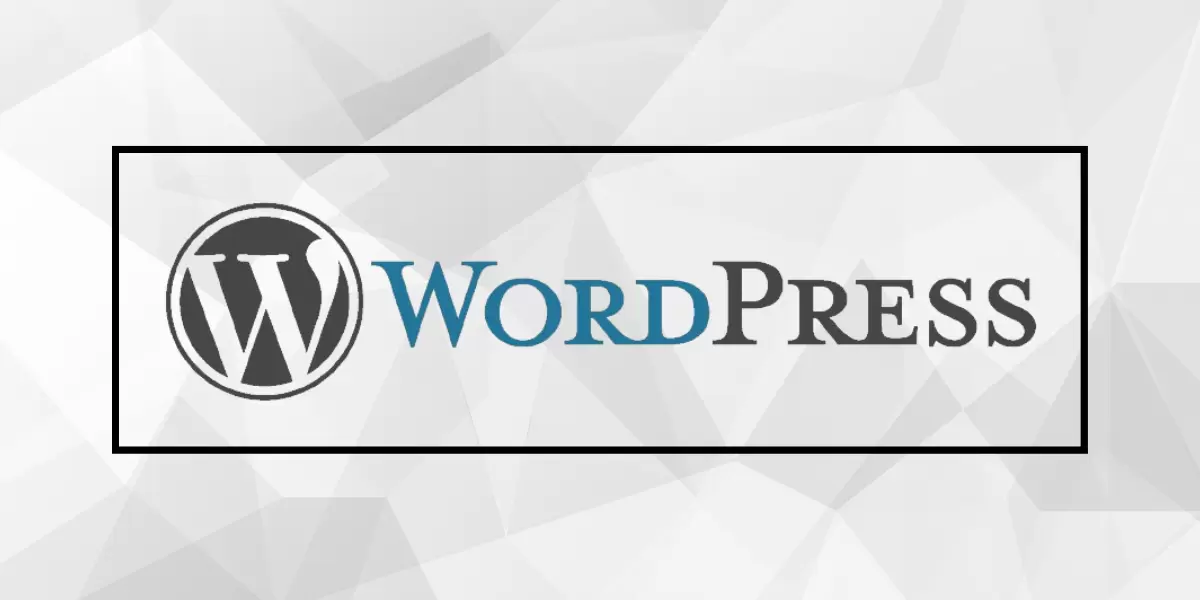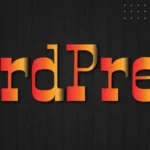How to get started with WordPress is a common question among WordPress beginners.
They should know that creating the first WordPress website has been very easy and can be done in a few steps, and the website is ready.
This article will show you how to start your journey using WordPress.
When creating your first WordPress website, you can be intimidated by the idea that it’s a big deal – especially if you don’t know where to start or what to do.
But once you start learning more about WordPress, you will begin to believe my words that WordPress is not something ubiquitous.
What is required is to learn through various articles like this post you are reading now.
Table of Contents
What is WordPress?
Remember, we are here. How To Get Started With WordPress. WordPress is a popular content management system (CMS) and blogging platform that allows users to create and manage websites easily.
It was first released in 2003 and has become one of the most widely used platforms, powering millions of websites across various industries and sectors.
At its core, WordPress is open-source software written in PHP. This means that its source code is freely available and can be modified and extended by developers.
This open-source nature has contributed to its immense popularity, allowing a large community of developers to continuously improve and enhance the platform.
WordPress offers a user-friendly interface that enables individuals with little to no coding knowledge to create and manage websites efficiently.
It utilizes a template-based system, where users can choose from a vast array of predesigned website themes to create their site’s overall look and layout.
These themes can be customized further using the WordPress Customizer or editing the underlying code.
In addition to themes, WordPress provides a wide range of plugins and extensions that add extra functionality to websites.
Thousands of free and premium plugins covering various features are available in the WordPress Plugin Directory.
Such features include e-commerce, search engine optimization (SEO), contact forms, social media integration, and more.
Plugins allow users to tailor their websites to meet specific needs and requirements without writing custom code.
WordPress is not only limited to blogging but has evolved into a robust CMS that can handle complex websites.
It offers a hierarchical system of pages and posts, allowing users to create static pages like About Us, Contact, and Services and dynamic blog posts.
The platform also supports multi-author collaboration, making it suitable for businesses, news websites, and other content-driven platforms.
Under the hood, WordPress employs a database to store website content, including posts, pages, comments, and user information.
By utilizing a database-driven architecture, WordPress enables efficient content retrieval and management.
It also provides powerful built-in features for managing user roles and permissions, allowing website owners to control who can access and edit various parts of the site.
Furthermore, WordPress prioritizes search engine optimization, making it easier for websites built on the platform to rank well in search engine results.
The platform generates clean and structured HTML code, includes customizable permalinks, and supports SEO plugins to optimize content and meta tags for search engines.
One of WordPress’s critical strengths is its vast and active community. The WordPress community is diverse and supportive, including developers, designers, bloggers, and business owners.
Users can find help, guidance, and solutions through online forums, documentation, tutorials, and local WordPress meetups.
The community also contributes to WordPress’s development by suggesting improvements, reporting bugs, and creating themes and plugins.
WordPress is a versatile and user-friendly content management system that empowers individuals and businesses to create and manage websites without extensive coding knowledge.
Its open-source nature, extensive theme and plugin ecosystem, search engine optimization capabilities, and strong community support have contributed to its widespread adoption and success.
Common WordPress Terminologies
To Get Started With WordPress, let’s talk about some WordPress terminologies.
- WordPress: Open-source content management system and blogging platform.
- CMS: Allows users to create, manage, and publish digital content.
- Themes: Predesigned templates for website appearance and layout.
- Plugins: Extensions that add extra functionality to websites.
- Posts: Dynamic content entries, typically used for blog articles.
- Pages: Static content entries like About Us, Contact, and Services.
- Permalinks: URLs that specify the permanent address of individual posts/pages.
- Database: Stores website content, comments, user information, etc.
- SEO: Optimizing website content to improve search engine rankings.
- User Roles: Assigning different levels of access and permissions to website users.
- HTML: Hypertext Markup Language is used to structure web content.
- Community: Supportive network of WordPress users, developers, and contributors.
Please note that this table only includes a selection of terminologies and their uses. WordPress encompasses a vast ecosystem with many more terminologies and features.
Types of Websites Can Be Build With WordPress
To Get Started With WordPress, let’s explore the types of website designs you can create using WordPress.
1. E-commerce Websites

WordPress, combined with popular plugins like WooCommerce, has become a powerful platform for creating online stores, enabling businesses to sell products and services quickly.
2. Corporate Websites

Many businesses, ranging from small startups to large corporations, have used WordPress to build official websites, showcasing their products, services, and company information.
3. News and Magazine Websites

WordPress offers dynamic features and content management capabilities, making it an ideal choice for news organizations, online magazines, and publishing platforms.
4. Nonprofit and Charity Websites

Organizations focused on social causes and charitable endeavors have leveraged WordPress to create websites that raise awareness, collect donations, and engage with supporters.
5. Educational Websites

Universities, schools, and online learning platforms have embraced WordPress to build interactive and informative websites for students, faculty, and the community.
6. Government Websites

Government agencies and public institutions have utilized WordPress to create websites that provide citizens access to services, information, and resources.
7. Community Forums

WordPress can create thriving online communities and discussion forums, fostering communication and collaboration among like-minded individuals.
8. Portfolio Websites

Artists, photographers, designers, and creative professionals have utilized WordPress to showcase their work, create portfolios, and attract potential clients.
9. Membership Websites

In conjunction with membership plugins, WordPress enables the creation of websites with restricted access, offering exclusive content, subscriptions, and member-only features.
10. Booking and Reservation Platforms

Businesses in the hospitality, travel, and service industries have harnessed WordPress to build booking and reservation websites, allowing users to make appointments, reservations, and bookings.
11. Job Boards

WordPress has been used to create job board websites that connect job seekers with employers, providing a platform for posting job listings and facilitating recruitment processes.
12. Real Estate Websites

Real estate agents and property management companies have employed WordPress to build websites that showcase listings and property details and facilitate property searches.
13. Directory Websites

WordPress can power directory websites, where users can list businesses, services, events, or any other categorized information, creating a comprehensive resource for users.
14. Social Networking Platforms

While not as common as other uses, WordPress has been utilized to create niche social networking platforms, fostering communities and facilitating interactions among users.
15. Online Communities

WordPress can be used to create online communities and social platforms where users can connect, share content, participate in discussions, and build relationships.
These are just a few examples of the extensive range of websites that WordPress has been used to create over time.
Its flexibility, customization options, and vast plugin ecosystem have made it versatile for various industries and purposes.
Benefits of Using WordPress
To Get Started With WordPress, let’s discuss the benefits of using it, which contribute to its popularity and widespread adoption.
Here are some key benefits of using WordPress:
1. Ease of Use
WordPress is renowned for its user-friendly interface, making it accessible to beginners and non-technical users.
The intuitive dashboard and easy-to-navigate menus simplify website management, content creation, and updates.
2. Flexibility and Customization
WordPress provides a wide range of customizable themes and plugins that allow you to create unique and personalized websites.
Themes control the design and layout, while plugins extend functionality, empowering you to tailor your website to your needs.
3. Content Management
WordPress was initially built as a blogging platform and excels at managing and organizing content.
Creating and editing posts and pages is straightforward, and the platform offers robust features for categorizing, tagging, and scheduling content.
4. SEO-Friendly
WordPress has built-in features that contribute to search engine optimization (SEO), helping your website rank higher in search engine results.
Clean code, customizable permalinks, meta tag control, and SEO plugins enable you to optimize your content for improved visibility.
5. Prominent Theme and Plugin Ecosystem
WordPress boasts an extensive library of themes and plugins, both free and premium, created by a vibrant community of developers.
This ecosystem allows you to enhance your website’s functionality and appearance, extending it beyond its core capabilities.
6. Active Community and Support
WordPress has a passionate and supportive community of users, developers, and contributors.
You can find assistance, guidance, and resources through forums, documentation, tutorials, and local meetups, making overcoming challenges and learning from experienced users easier.
7. Scalability
WordPress scales well to accommodate your needs, whether starting with a simple blog or planning a complex website.
From small personal sites to large e-commerce platforms, WordPress can handle websites of varying sizes and traffic volumes.
8. Mobile Responsiveness
With the increasing use of mobile devices, having a mobile-responsive website is crucial.
WordPress offers numerous responsive themes, ensuring your website looks great and functions well on different screen sizes and devices.
9. Regular Updates and Security
WordPress is continuously updated to improve performance, fix bugs, and enhance security.
The dedicated team behind WordPress releases regular updates, and the platform has a robust security framework to protect your website from vulnerabilities.
10. Integration Capabilities
WordPress can seamlessly integrate with various third-party tools and services.
WordPress offers integration options to enhance your website’s functionality, whether with social media platforms, payment gateways, analytics tools, or marketing automation software.
These benefits make WordPress an attractive choice for individuals, businesses, and organizations looking for a user-friendly, customizable, and feature-rich platform to build and manage their websites.
KEEP READING
- How To Secure and Manage WordPress Websites In 2024
- How To Use The WordPress Admin Area: Basic Functionality 2024
Get Started With WordPress, Conclusion
In this post, we have seen how to get started with WordPress. We have learned what WordPress is, the types of websites that it can build, and the benefits of using it.
I believe you will have benefited from this post. After this, I suggest you go through this post to get the continuation of this WordPress topic.
Let’s meet in the comments to discuss anything.
If you liked this article, please follow us on the following Social Network:
- Find Us On Facebook
- Connect with WordPress Experts and other WordPress Users in our free Facebook Community.
- Join Us On Twitter
- Follow Us On the Telegram Group
- Find Us On the WhatsApp Channel
- Contact Us by Email: contact@thewpskill.com
- You can also reach Us by using the Contact Form.
- Also, find Our Blog Page for more tutorials.
- Follow Us On Google News for more updates.


















